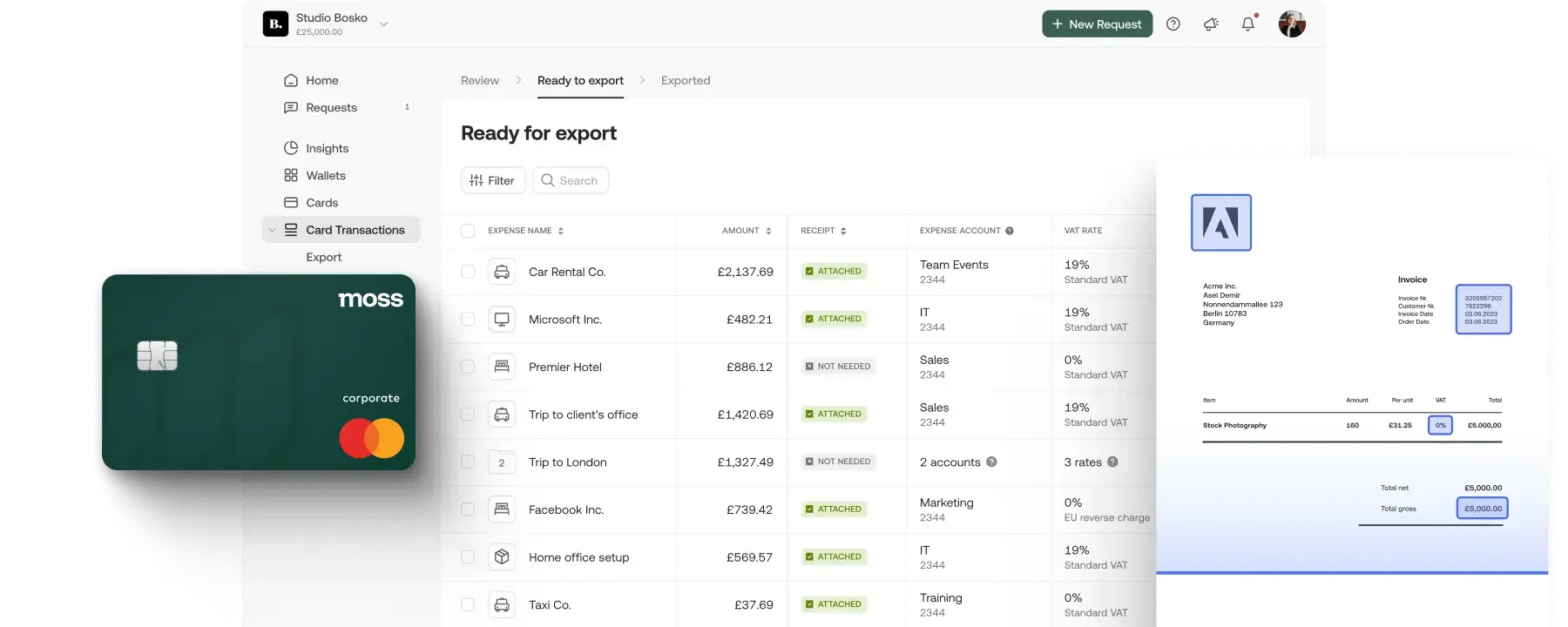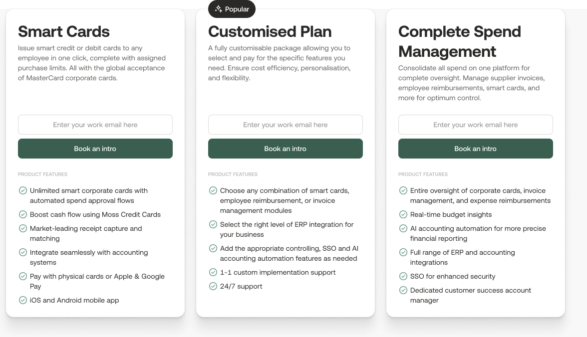What does a CFO do and how does their role impact the success and strategic direction of a business? It’s a question that’s often asked by employees lower down the org chart, particularly those unfamiliar with finance. But it’s also a common question among business owners.
The CFO plays a key role in the day-to-day running of a healthy business, and they can have a direct impact on a company’s strategic vision and long term financial success. As such, it’s important to understand what the CFO role entails. To help, we’ve created this guide, which covers the topic in more detail.
CFO meaning and differentiation

CFO, standing for Chief Financial Officer, is one of many similar sounding abbreviations you’ll find in the modern workplace. Let’s start with an easy definition and describe how it differs from other senior roles.
The Chief Financial Officer is considered the highest ranking position within the finance department. As such, they’re usually the final decision makers regarding strategy and all things related to finance.
The CFO is not to be confused with the Chief Executive Officer (CEO). Although they both work closely together, the CFO reports to the CEO. The following senior executive positions can also be part of the so-called C-suite or C-level:
- COO (Chief Operating Officer)
- CMO (Chief Marketing Officer)
- CTO (Chief Technology Officer)
- CIO (Chief Information Officer)
- CHRO (Chief Human Resources Officer)
- CSO (Chief Security Officer)
- CDO (Chief Data Officer)
Whether or not a specific department needs a specialist to oversee processes depends on a number of different factors. This may include its business model, corporate structure, and its willingness to invest in professional guidance.
The role of a CFO in detail
As you can imagine, with great power comes great responsibility. Being the CFO of a company means building a great finance and accounting team that’s up to par with the organisation’s strategy and goals.
As a result, they will have many different responsibilities within their role as the senior executive of their department. This can include:
- Keeping track of revenue
- Overseeing financial planning and analysis
- Allocating budgets
- Controlling spend in relation to budgets
- Improving processes and reporting methods that may be prone to errors or inaccuracies
- Obtaining funding
- Guiding and training senior team members
- Reporting to the CEO
- Providing C-suite with financial advice and insights, for example on acquisitions and mergers
- Consulting with directors
That being said, CFOs don’t just manage ongoing operations. They also act as visionaries who plan ahead using their knowledge and experience. Being prepared to make bold strategic moves is also essential.
How has the role of the CFO changed?

As we’ve already mentioned, the CFO plays a highly strategic role within modern companies. However this strategic focus for CFOs is a reasonably recent development.
Traditionally the CFO was in charge of all finance-related tasks within the company. This included overseeing internal and external financial reporting, controlling, budgeting, etc.
However, over recent years CFOs have taken on a much more strategic role within a company. There are a number of factors that have played a role in this transition, including:
- Increased financial pressures on businesses, especially since the pandemic.
- A more competitive business environment.
- Advances in technology which give businesses and their teams better insights and control over their finances.
Deloitte outlines the ‘four faces’ CFOs must assume in order to perform the role in the modern business environment:
- Catalyst — The CFO is now seen as a key agent for driving organisational change due to their position in between all other core departments in a business. They are essential when it comes to establishing a value-first culture where financial accountability becomes a key priority for departments and employees throughout the company.
- Strategist — The Modern CFO uses their deep financial knowledge of the company and wider financial markets to inform and steer top level strategy and ensure long term business success. This is part of a wider transition towards using hard data to make decisions throughout a business.
- Steward — Alongside newer aspects of the role, the CFO still has to oversee traditional responsibilities as a financial steward. This means ensuring that the company adheres to financial reporting and compliance regulations and includes tasks like accounting, controlling and risk management day to day.
- Operator — The CFO also ensures financial efficiency throughout the business, as well as a necessary level of service from the finance team for other departments as needed.
The CFO career path
Research shows that the proportion of first-time CEOs in S&P 500 companies that previously held the CFO position had more than doubled between 2000 (3%) and 2020 (10%) — Spencer Stuart.
This is significantly less than the number of new CEOs that have been promoted from the Chief Operating Officer (COO) position (39% in 2020). However, unlike CFOs, the proportion of COOs being promoted to CEO for the first time has seen a significant decrease since 2000.
Does every business need a CFO?

It seems to be common for high-ranking businesses and up and coming competitors to seek the expertise of a CFO. Having someone to pull the team together and focus on the company’s longer term goals truly is essential—not only for big organisations but also smaller and medium-sized businesses too. That’s why we see more and more companies hiring CFOs.
Whether they actually need them may be up for debate in some cases. But having a CFO will undoubtedly help ease pressure on other C-level executives and team members dealing with day-to-day financial planning. Liquidity and excellent bookkeeping are essential pillars to success. If an organisation can send the CFO to talk business, it leaves a great impression, too.
When CEOs are at a crossroads, a CFO can provide valuable support by backing up or discarding ideas and plans based on objective criteria such as profitability, liquidity and financial risk. As such, CEOs are usually fond of the idea of investing in highly-experienced financial advisors, even if the additional C-level position means high costs for their businesses.
CFO qualifications and skills

While the CEO is considered the official spokesperson and voice of a business, the CFO usually works in the background. However, it still requires certain hard and soft skills to make it to the top. Many financial directors eventually step up to fill the role of chief financial officer after having proven foresight, experience, and leadership skills in lower positions.
CFOs have to think strategically, be able to mitigate corporate risks, and have excellent knowledge of fiscal processes. This includes being fully tuned in to the company’s financial situation and the wider market at all times.
Being able to see the big picture is crucial: Can the organisation afford to expand or introduce new services or products? These decisions should never be taken without a detailed understanding of the possible implications for the business. As a result, CFOs need to be highly analytical. This is why many who end up in the CFO role start out as accountants, tax specialists or data analysts.
However, it goes without saying that senior executives do not take care of the workload all by themselves. They rely on a qualified team who can deliver important data and analysis that allows for great decision-making. This team includes bookkeeping, accounting, financial controllers, payroll specialists, tax experts and more. A good CFO is able to delegate, choose the right people for the business and accept other people’s support, all while keeping their team motivated and detail-oriented.
Common challenges for CFOs
It’s often said that a CFO wears many hats, especially in small businesses. Crunching numbers, managing cash flow, leading a team, analysing data, working on reports or even leaning into fields like cybersecurity, or data integration — the list can be endless. CFOs know better than anyone when a company has to work on a tight budget or is in desperate need of a hiring freeze.
Another common challenge faced by CFOs is excessive workload. Too many responsibilities may mean there’s not enough time to devote themselves to key goals and priorities. One of the first steps for every new CFO should be to assess team responsibilities and delegate tasks as necessary. This can also be achieved with process automation throughout the finance department and business as a whole.
When is the right time to hire a CFO?
There’s never a bad time to hire a finance expert. However, CEOs of small and medium-sized companies may refrain from proactively hiring a professional senior executive or promoting competent staff because they fear high wages or maybe even loss of control over financial decisions. There are good arguments against both of these scenarios:
Myth 1—high costs: Mistakes and bad decisions cost a business much more than hiring a finance professional with a great vision for the company. A good CFO works towards a high return on investment (ROI) and therefore supports growth and increases revenue.
Myth 2—loss of control: The feeling that CFOs might undermine free decision-making by meddling with the chief executive officer’s business is common, but if that is the case, either the CFO is not a good fit for the company or the CEO is not willing to accept advice. There are solutions in both of these situations. As we see it, other opinions are always beneficial, and should be welcomed, especially when big money and the fate of employees are on the line.
How Moss supports CFOs and finance teams

There’s no doubt that financial leadership and visionary ideas should be a major priority for all businesses, regardless of their stage of growth.
But the amount of data that CFOs and their team members have to deal with increases day by day. Structure and automation are key if you want to learn about your company’s strengths and weaknesses. At Moss we want to put an end to guesswork and uncertainty. Moss Insights not only helps CFOs, it also helps businesses that cannot afford a large finance team. By bundling all corporate accounts together on one platform, it’s possible to manage and analyse income and expenses in real-time—and even on the go.
Besides offering a structured way to learn more about your business’ financial data, invoice management can simplify everyday processes. Free your team from time-consuming accounting tasks, and give them more time to think about the important questions—how can the business grow faster and better?
We also support companies with a smart interface that allows them to transfer all of their data to Xero. On top of this you can hand out corporate cards to every employee who needs one, so tedious reimbursement processes become a thing of the past.
FAQs
The CFO is responsible for all things related to the financial well-being and growth of a company. They make sure that the finance department runs smoothly, including overseeing bookkeeping, and also outlining the financial vision and company goals.
CFO stands for Chief Financial Officer. It is a common senior executive role in larger companies. Like most other C-level positions, the CFO usually reports to the CEO or Chief Executive Officer.
A CFO usually has a degree in finance and is well acquainted with accounting and/or financial strategic development. The role also requires several soft skills, like leadership qualities and strong communication skills.
Small and medium-sized businesses do not necessarily need to hire a CFO if they can oversee their finances properly. However, having a fiscal expert on board is always useful to help develop growth strategies, ensure liquidity and analyse financial data.
Many CFOs start in accounting and work their way up from junior positions to senior levels. This progression does not necessarily have to happen in the same company. It is critical to bring experience to the table that will help the business properly assess risk and take the right steps towards growth.
While the CEO is often seen as the face and sole decision-maker of a business, the CFO plays an essential role behind the scenes. They know how to handle financial insights, possible risks and important tax issues that can make or break a company. A trustworthy CFO therefore can give invaluable advice, especially when an enterprise is in urgent need of a course correction.








